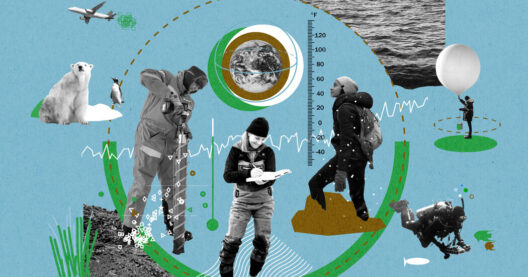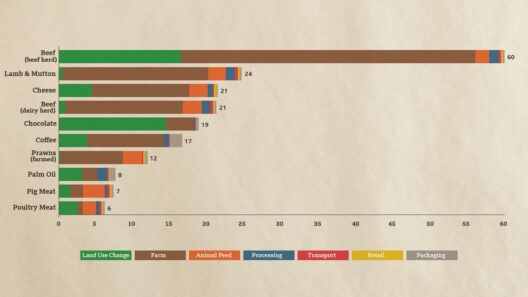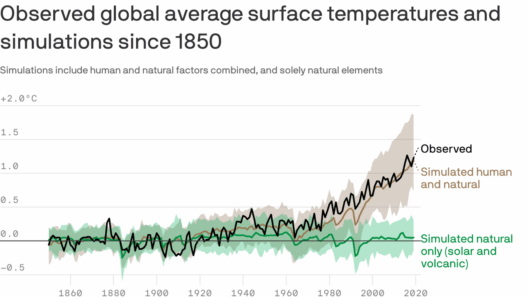In the realm of animated television, few shows have dared to take on politically charged subjects with the audacity and irreverence that “South Park” does. One topic that has been recurrent in the series is climate change. The creators, Trey Parker and Matt Stone, have used satire as a lens through which they explore societal norms, governmental inefficiencies, and pressing global issues. The question of whether Parker himself believes in global warming requires delving into the nuanced portrayals within the show and understanding the creators’ broader views on environmental matters.
The essence of “South Park” lies in its willingness to tackle controversial subjects without hesitation. The series has addressed climate change in various episodes, perhaps most notably in the “Global Warming” episode of Season 12. Here, the storyline revolves around a fictional crisis that encapsulates the urgency and complexity of climate issues. While the episode is rich with satirical commentary, it indirectly reflects Parker’s thoughts on the subject. The contentious nature of climate change provides fertile ground for the show’s trademark humor, enabling both creators to mock the absurdities of climate denialism while simultaneously critiquing the extreme actions proposed by some environmentalists.
One of the paramount missions of “South Park” is to provoke thought and dialogue among audiences. This ambition shines through in the show’s handling of climate change. A hallmark example is the “A Scause for Applause” episode, which satirizes the trendy adoption of environmentalism without genuine understanding. The episode illustrates how individuals and corporations often capitalize on environmental rhetoric, presenting themselves as eco-friendly while their actions tell a contradictory story. In this light, Trey Parker and Matt Stone showcase their skepticism towards superficial commitments to the climate cause, urging viewers to seek authenticity in environmental advocacy.
Parker and Stone often wield satire as a weapon against both sides of the climate debate. They lampoon the excessively pro-environmental attitudes that sometimes disregard scientific substantiation, while simultaneously critiquing the self-serving perspectives of climate change skeptics. This duality positions the creators as complex figures in the environmental discourse—they recognize the legitimacy of climate change yet question the efficacy and sincerity of certain responses to it. Rather than adopting a single definitive stance on global warming, their approach fosters an environment where ideas can be dissected and scrutinized.
The medium of animation allows for a unique exploration of esoteric themes, enabling Parker and Stone to present climate change in an entertaining yet contemplative manner. Characters often embody exaggerated traits, reflecting the spectrum of human responses to climate issues. Cartman, for instance, epitomizes the denialist stance, while other characters occasionally drift towards extremes in environmental activism. In portraying these extremes, the creators underline a critical message: that climate change necessitates a balanced, informed approach rather than reactionary extremes. Therein lies Parker’s potential agreement with the scientific consensus on climate change—he aims to illustrate the dichotomy of positions surrounding the issue.
Additionally, Parker’s perspective may reflect a broader critique of societal inertia in combating climate change. In episodes where climate discussions percolate, there is often an undercurrent highlighting the failure of collective action. This suggests an awareness that while he may recognize climate change as a vital issue, the societal response is riddled with complacency and hypocrisy. Through humor, the creators appeal to their audience’s sensibilities, urging introspection on what effective environmentalism can and should entail.
Critics of Parker and Stone argue that their irreverence can trivialize grave subjects such as climate change, but the creators often counter this perspective with points of candor that lead viewers toward reflection. Their choice to satirize various positions on climate change serves not only to entertain but to compel viewers to confront their beliefs. By framing the dialogue in a light-hearted yet pointed manner, they evoke a questioning of reality, pushing for deeper understanding of the intricate messiness surrounding global warming and environmental degradation.
Furthermore, the impact of Parker and Stone’s work extends beyond mere entertainment; it sparks vital discussions about climate action. Their satirical takes prompt audiences to assess their own roles and responsibilities in addressing such a monumental issue. In a world fraught with misinformation and polarized opinions, the questioning nature of “South Park” may serve as an antidote to ignorance, igniting curiosity about the systemic changes needed to combat climate change effectively.
Ultimately, whether Parker personally believes in global warming remains somewhat ambiguous. However, what becomes unmistakably clear is his inclination to engage with the dialogue surrounding climate change through a satirical lens, exposing the contradictions and absurdities of human behavior toward environmental issues. The multivalence of “South Park” provides a unique platform for examining our collective relationship with the planet, encouraging viewers to look beyond short-term comedic relief and contemplate the long-term impacts of climate action. Parker’s contributions to the discourse around climate change exemplify the power of satire as a transformative tool, fostering curiosity and potentially inspiring meaningful change.
In conclusion, “South Park” has undeniably provoked vital conversations about climate change, regardless of the personal beliefs of its creators. Through a deft combination of humor and critical analysis, Parker and Stone illuminate the complexities of environmentalism in the modern world. The challenge now, as presented through their work, is to embrace the discourse and seek substantive changes to protect our planet.








